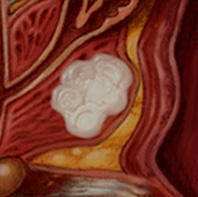Death after using selenium to treat suspected prostate cancer

After a single test showing a raised level of prostate-specific antigen, a 75-year-old man became concerned about prostate cancer. He researched prostate cancer on the Internet and discovered that selenium may have a role in its prevention and treatment. He purchased sodium selenite powder and tablets from two separate pharmacies. Overdosed himself, and died in the hospital intensive care unit about 5 hours later.
What are we to learn from this sad case?
First, select your sources of information carefully. Articles in the popular press might be most accessible, but at best they are only a starting point for more authoritative and detailed guidance.
Second, prevention and treatment are not the same. Studies that report success in prevention should not be interpreted to mean that there will be success in treatment.
Finally, dosing is critical. Treat drugs and supplements as poisons. Don’t be fooled by so called “organic” treatments and sources. Remember, lead is a natural organic supplement, but it’s also a poison. Consider taking only the dose that has been proven effective. More is not necessarily better.
Here’s what we know about selenium and prostate cancer, according to the University of Maryland.
- Several studies indicate that selenium may protect against prostate cancer
- In one large study, the protective dose was 200 micrograms of selenium (in the form of brewer’s yeast)
- Studies reporting that selenium may suppress the growth of prostate cancer cells are limited to research in the laboratory
- At best, selenium supplementation may be worth considering as part of a regimen to treat or prevent progression of prostate cancer
Be smart about using the Internet for health information. The World Health Organization has published guidelines.
Illustration: Isreal21c
10/15/06 11:15 JR